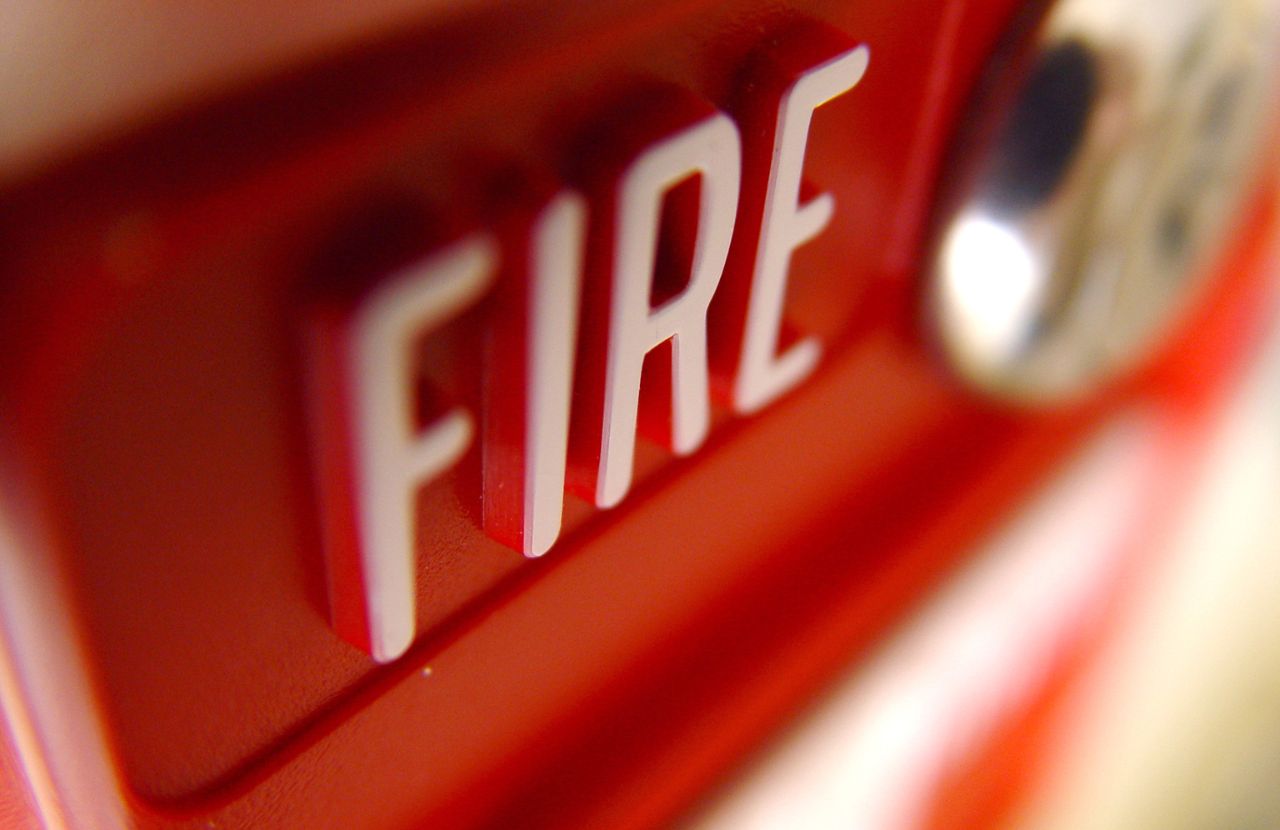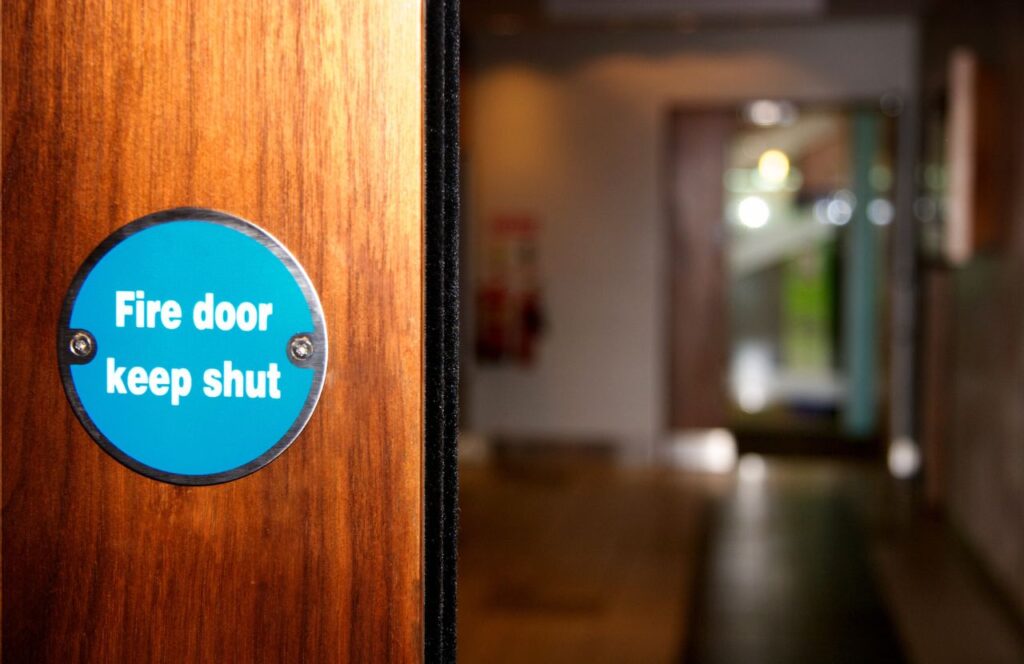
Fire safety consultants are experts trained to understand and control fire risks in a variety of environments. They offer specialised knowledge and practical guidance to help organisations meet legal requirements and implement comprehensive fire safety strategies that mitigate risks and ultimately save lives.
Here we share the multiple benefits fire safety consultants bring to organisations of all sizes across every sector.
1. Fire risk assessment
Consultants perform thorough fire risk assessments to identify and assess potential fire hazards. This process provides a clear understanding of fire risks and how to manage them effectively. Selecting a competent fire risk assessor to protects people and property from the devastating impact of fire and ensures compliance with the law.
During a fire risk assessment, a consultant systematically evaluates a premises for potential fire hazards. This includes identifying sources of ignition, materials that could fuel a fire, and individuals at risk. They then assess these factors in light of existing fire protection measures, such as fire detection systems, evacuation procedures and fire safety training provided to employees.
The assessment culminates in a detailed report outlining the identified risks, the severity of these risks, and recommendations for improving fire safety measures as well as the existing control measures in place. These recommendations are based on the latest guidance and standards, ensuring fire safety practices remain current and effective.
To learn more about what is involved in a fire risk assessment, please read our article, What is a fire risk assessment and why do you need one?
2. Emergency planning and evacuation
In the event of a fire, a well-executed fire evacuation plan can save people’s lives.
Fire safety consultants collaborate with clients to develop detailed evacuation plans tailored to the layout and characteristics of a building. These plans delineate escape routes, assembly points, and communication strategies. Consultants consider accessibility and egress for people with disabilities and the coordination of emergency services.
3. Regulatory compliance
In the aftermath of the Grenfell Tower fire in 2017, the emphasis on fire safety regulations has intensified. Fire safety consultants must be well-versed in a multitude of regulations, including the Regulatory Reform (Fire Safety) Order 2005, Building Regulations, and associated guidance documents.
Navigating this intricate web of regulations requires a deep understanding of legal requirements and the ability to interpret and apply them to diverse settings. Fire safety consultants stay abreast of changes to regulations and standards to ensure organisations stay compliant.
Fire safety consultants conduct regular compliance audits, identifying gaps and recommending corrective actions to make sure legal requirements are met. Compliance is not just about avoiding penalties; it is about safeguarding lives and assets. Consultants play a critical role in bridging the gap between regulatory requirements and practical implementation.

4. Pragmatic advice
Fire safety consultants offer practical, realistic guidance to those responsible for maintaining fire safety. Their advice considers the specific circumstances of the client and the building use and occupancy. They aim to strike a balance between legal compliance, best practices, and the practical feasibility of implementing recommended measures.
Every building has unique characteristics, layouts, and occupancy types. Pragmatic advice involves understanding these specifics and suggesting fire safety measures that are effective for that building.
Consultants also consider factors such as budget restraints, existing infrastructure, and operational requirements. They suggest measures that can be practically implemented without causing undue disruption or financial strain.
Whilst legal compliance is essential, consultants prioritise the most significant fire risks, and take into account the cost-benefit ratio of different fire safety measures. They guide clients to focus on critical areas where improvements are most needed, and recommend long-term solutions that can be maintained, tested, and updated over time to ensure ongoing effectiveness.
In short, fire safety consultants provide advice that considers the specific needs of their clients. Their goal is to help clients make informed decisions about fire safety measures that are realistic, achievable, and tailored to their unique situations.
5. Fire risk management systems (FRMS)
Fire safety consultants work closely with clients to establish effective FRMS (fire risk management systems). These systems support organisations to plan, organise and monitor fire safety arrangements. They encompass policies, procedures, training programs, and ongoing assessments.
FRMS ensure that fire safety remains an ongoing priority, with regular fire drills and updates to adapt to changing circumstances. Consultants help organisations develop and implement clear protocols for fire prevention, evacuation, communication, and response.
6. Operational continuity
Disruptions caused by fires can be catastrophic to business operations. By identifying and mitigating fire risks, a fire safety consultant helps ensure that an organisation’s operations can continue even in the face of unexpected incidents. This translates to minimised downtime, maintained productivity, and reduced financial losses (see below).
7. Financial savings
Hiring a fire safety consultant can lead to significant financial savings in the long run by preventing the significant losses and costs associated with fire incidents.
Fire safety consultants are experts in identifying potential fire hazards and vulnerabilities in particular settings. By addressing these issues proactively, they can prevent fires from occurring in the first place saving property damage, equipment loss, business interruption and the unquantifiable cost of a damaged reputation.
By ensuring compliance, a fire safety consultant can help ensure an organisation avoids fines and legal costs. In addition, implementing effective fire safety measures may also reduce insurance premiums because fewer claims mean cheaper insurance. It may also be possible to negotiate lower premiums when recommended fire safety measures are implemented.
8. Peace of mind
Fire safety professionals bring expertise and practical solutions that safeguard your employees and visitors, protect your property and ensure legal compliance. With a clear action plan in place to address these risks, you can focus on your core operations with confidence in your fire safety.
Investing in a fire safety consultant is an investment in the safety, resilience, and success of your organisation.
Learn more about Praxis42’s fire safety consultancy services, including professional fire risk assessments.

Rob Sherman
Director of Fire Safety
